Opinion
Nigeria’s Brain Drain Conundrum: A Call To Action

By David Osadolor
As we deal with the multiplex of our minds and call to heart the things that should be in the most definite ways, it is indeed beyond the questions of hope and endeavors. People are losing faith in the country and their attitudes are showing that. When an institution can no longer provide the basic things needed by its citizens, people lose faith. It is therefore okay in an absolute manner to understand that when dealing with our temperamental stars, habits, and attitudinal behavioral conducts would always hold the pillars of societal balance in relative terms. People are battered, tattered, and torn, both from dealings within their societal circles and the cycle of the national polity, and there is just no way to keep the magic light and lead the way if the habits formed from the system are not reformed to lead a successful life.
Beyond this, at the other side of this long table will be questions; aching hearts and searching eyes, and the solemn ideas of what exactly they are trying to be or where they can get to lead a better life. Amid these pains are people; hearts, and heads, and the numbers are constantly increasing as more questions are popping up from the distant shadows like silhouettes coming to life face to face with the cold realities of the entirely aching nation with no one willing to pick up the pieces. So here are the biggest catches; beyond the questions are questioners – people who have come along with a cumulative experience, adversity from childhood or something picked at adulthood. Most times, these people are often with value-laden and hurt-laden struggles which have shaped their current habits and the necessities of letting go are not so visible. This is the system. This has nothing to do with motivation or willpower, but the loss of faith in the institution and the necessity to find a better place to live and thrive.
Nigeria, Africa’s most populous nation and one of the continent’s largest economies, is often lauded for its abundant natural resources and rich cultural heritage. However, beneath this veneer lies a deeply troubling phenomenon – brain drain. The term “brain drain” refers to the emigration of highly skilled and educated individuals from one country to another in search of better opportunities. In Nigeria, this trend has reached alarming proportions, with thousands of professionals, particularly in the medical, academic, and technological sectors, leaving the country annually. This exodus has far-reaching consequences, not only for Nigeria’s economic development but also for its social stability and future growth prospects.
Let us remember therefore that in the past, our ancestors were forcibly taken to foreign lands in vast numbers, leaving behind only a few men, women, and children. This mass displacement, known as the trans-Atlantic slave trade, devastated our communities and stalled development, leaving our land barren. Many African scholars, such as Walter Rodney in his seminal work ‘How Europe Underdeveloped Africa’ (1972), argue that the slave trade significantly hindered the development of the continent, which was rich in both human and natural resources.
Unlike the forced migration of the past, this modern exodus is voluntary, driven by the search for better opportunities outside the shore of Nigeria. This migration manifests in two primary ways. First, there is the Brain Drain, where educated Nigerians leave the country to practice their skills elsewhere due to the lack of favourable conditions at home. Second, there is the broader migration of individuals seeking greener pastures, even when they may not have significant contributions to offer in their destination countries.
The lack of opportunities for many talented Nigerians has led to a significant diaspora across Europe and America. The country’s failure to provide an environment where its citizens can fully realise their potential has exacerbated the challenges of brain drain and migration, contributing to Nigeria’s ongoing development struggles. Our universities have suffered from poor government policies, leading to a decline in quality and prestige. Studying abroad, even in neighbouring countries like Ghana and Benin Republic, has become a status symbol. In the medical field, a significant number of Nigerian doctors and nurses now practice in the United Kingdom, while our political leaders, unable or unwilling to fix the healthcare system at home, seek medical treatment abroad.
As the country struggles to address its myriad challenges, the loss of its brightest minds creates a conundrum – a complex and persistent problem that seems almost impossible to solve.
The Root Causes of Brain Drain in Nigeria
One of the primary drivers of brain drain in Nigeria is the country’s deteriorating economic conditions. Despite being one of the largest oil producers in the world, Nigeria has been unable to translate its natural wealth into broad-based prosperity. High unemployment rates, inflation, and a volatile currency have created an environment where many professionals see no viable future for themselves and their families. For instance, a 2020 report by the World Bank indicated that nearly 40 per cent of Nigeria’s population lived below the poverty line, and this figure has likely worsened due to the impact of the COVID-19 pandemic. In such an environment, the allure of higher-paying jobs, better living conditions, and more stable economies abroad is irresistible.
A second major cause of brain drain is the inadequate state of infrastructure and public services in Nigeria. Healthcare, education, and power supply are critical sectors that have suffered from years of neglect, under-funding, and corruption. The healthcare sector, for example, is in a state of crisis, with many hospitals lacking basic equipment and supplies. This has prompted a mass exodus of medical professionals, particularly doctors and nurses, to countries where they can work in better conditions. According to the Nigerian Medical Association (NMA), as of 2021, about 10,000 Nigerian doctors were practicing in the United States alone, with thousands more in the United Kingdom, Canada, and other countries. The education sector is similarly beleaguered, with universities frequently shutting down due to strikes, poor funding, and inadequate facilities, driving academics to seek opportunities abroad.
A third factor contributing to brain drain is the pervasive insecurity in Nigeria. The country has been grappling with various forms of violence, including terrorism, banditry, and communal conflicts, for over a decade. The rise of Boko Haram in the northeast, the persistent clashes between herders and farmers in the middle belt, and the kidnappings for ransom that plague various parts of the country have made Nigeria an increasingly dangerous place to live and work. Many professionals, especially those with young families, feel compelled to leave the country for safer environments. The tragic abduction of over 270 schoolgirls in Chibok in 2014 and the regular reports of attacks on schools, churches, and villages, highlight the extent of the insecurity. In response, many Nigerians have sought asylum or emigrated to countries where they feel their safety is assured.
Lastly, the lack of good governance and political stability in Nigeria is a significant catalyst for brain drain. Corruption, nepotism, and a lack of accountability have eroded public trust in government institutions and stymied efforts to improve the country’s socio-economic conditions. The failure to hold credible elections, ensure the rule of law, and protect human rights has driven many Nigerians to seek a better life elsewhere. For example, the End SARS protests of 2020, which began as a call to end police brutality, quickly morphed into a broader movement against bad governance. The government’s heavy-handed response, including the infamous Lekki Toll Gate shooting, reinforced the perception that the Nigerian state is not only incapable of protecting its citizens but is also complicit in their suffering. This has further fueled the desire among many Nigerians, particularly the youth, to emigrate.
Consequences of Brain Drain on Nigeria’s Development
The mass exodus of skilled professionals from Nigeria has severe consequences for the country’s development. One of the most immediate and visible impacts is the decline in the quality of public services. In the healthcare sector, the departure of doctors, nurses, and other medical professionals has left many hospitals understaffed and unable to provide adequate care to patients. According to the World Health Organization (WHO), Nigeria has a doctor-to-patient ratio of 1:2,500, far below the recommended ratio of 1:600. This shortage has led to increased mortality rates, particularly for preventable and treatable conditions. Similarly, the loss of educators and researchers has diminished the quality of education in Nigeria, with many universities struggling to maintain academic standards. This has created a vicious cycle, as the decline in educational quality drives more students and academics to seek opportunities abroad, further exacerbating the brain drain.
Another consequence of brain drain is the loss of potential economic growth. Skilled professionals are critical to driving innovation, increasing productivity, and improving competitiveness in the global economy. When these individuals leave Nigeria, they take with them not only their skills and knowledge but also their potential to contribute to the country’s economic development. The technology sector, for example, has seen a significant outflow of talent, with many Nigerian tech entrepreneurs and engineers relocating to Silicon Valley, Europe, or Asia. This has deprived Nigeria of the opportunity to build a robust and dynamic technology industry that could create jobs, attract investment, and drive economic diversification. Instead, Nigeria remains heavily reliant on oil exports, which are subject to global price fluctuations and offer little in terms of sustainable development.
Brain drain also has significant social and cultural implications for Nigeria. The departure of educated and skilled individuals has created a vacuum in leadership and expertise within communities, weakening the social fabric and undermining efforts to address local challenges. For instance, in many rural areas, the absence of doctors and teachers has left entire communities without access to basic health care and education, perpetuating cycles of poverty and underdevelopment. Moreover, the loss of cultural and intellectual capital has led to a decline in the vibrancy of Nigeria’s cultural and academic institutions. Many Nigerian authors, artists, and intellectuals have relocated abroad, where they can find greater support and appreciation for their work. This has diminished Nigeria’s cultural influence on the global stage and reduced the diversity of voices contributing to the country’s national discourse.
Furthermore, brain drain exacerbates the inequality and social divisions that already plague Nigerian society. The professionals who emigrate are often those with the resources, connections, and education to do so, leaving behind a population that is increasingly divided along economic and social lines. This growing inequality fuels resentment and discontent, particularly among the youth, who see fewer opportunities for social mobility and personal advancement. The increasing gap between the “haves” who can afford to leave and the “have-nots” who are left behind, contributes to social tensions and undermines national unity. This division is further deepened by the remittances sent by those who have emigrated, which, while providing a vital source of income for many families, also create dependencies and distort local economies.
Real-Life Examples of Brain Drain and Its Impact
Several real-life examples illustrate the devastating impact of brain drain on Nigeria. One of the most poignant cases is that of the medical sector. In 2021, it was reported that over 80 per cent of the doctors who graduated from Nigerian medical schools in the last decade had left the country. This exodus has left many hospitals in Nigeria, particularly in rural areas, without enough qualified personnel to treat patients. The COVID-19 pandemic further exposed the vulnerabilities of Nigeria’s healthcare system, as the shortage of medical professionals hampered the country’s response to the crisis. In contrast, Nigerian doctors abroad have been making significant contributions to healthcare systems in the United States, the United Kingdom, and other countries, highlighting the loss to Nigeria’s own system.
In the academic sector, the story of Professor Olufunmilayo Olopade, a renowned Nigerian-born oncologist and geneticist, is a telling example. After completing her medical training in Nigeria, she moved to the United States, where she became a leading researcher in cancer genetics and personalized medicine. Her work has had a significant impact on the treatment of breast cancer, particularly in women of African descent. While her achievements are a source of pride for Nigeria, they also underscore the loss of talent that could have contributed to the development of medical research and education within the country.
The technology sector provides another striking example of brain drain. Iyinoluwa Aboyeji, a Nigerian entrepreneur, co-founded Andela, a company that trains software developers in Africa and connects them with global tech companies. Despite the success of Andela, Aboyeji eventually left Nigeria for Canada, citing the challenging business environment and the lack of support for entrepreneurs in Nigeria. His departure, along with that of many other tech innovators, highlights the obstacles that prevent Nigeria from fully capitalising on its talent pool.
Finally, the story of Chimamanda Ngozi Adichie, one of Nigeria’s most celebrated authors, reflects the cultural impact of brain drain. Although Adichie has gained international acclaim for her novels and essays, much of her work has been produced while living abroad. Her decision to leave Nigeria was driven in part by the limited opportunities for writers and intellectuals within the country. While she continues to engage with Nigerian issues through her writing, her physical absence from the country represents a loss of cultural and intellectual leadership that could have contributed to Nigeria’s literary and artistic development.
Potential Solutions and the Role of Policymakers
Addressing the issue of brain drain in Nigeria requires a multifaceted approach that tackles both the push and pull factors driving emigration. Policymakers must first focus on improving the economic conditions within the country. This involves creating an enabling environment for businesses, reducing unemployment, and ensuring that wages are competitive with those in other countries. Economic reforms should also include measures to stabilize the currency, control inflation, and attract foreign investment. By improving the economic prospects within Nigeria, the government can make staying in the country a more attractive option for professionals.
Investing in infrastructure and public services is another critical step. The government must prioritise the healthcare, education, and power sectors, ensuring that they are adequately funded and managed. This includes upgrading hospitals and schools, providing continuous training for professionals, and ensuring that essential services such as electricity and clean water are consistently available. By improving the quality of life in Nigeria, the government can reduce the incentive for skilled professionals to seek better conditions abroad.
Addressing insecurity is also paramount. The government must take decisive action to restore peace and stability in all parts of the country. This requires not only military interventions but also efforts to address the root causes of violence, such as poverty, inequality, and social exclusion. Additionally, the government should work to strengthen the rule of law, protect human rights, and ensure that all citizens feel safe and secure within the country. By creating a safer environment, the government can encourage professionals to stay in Nigeria rather than seeking refuge in other countries.
Finally, improving governance and political stability is essential to reversing brain drain. The government must demonstrate a commitment to transparency, accountability, and the rule of law. This includes holding credible elections, combating corruption, and ensuring that public officials are held accountable for their actions. By restoring public trust in government institutions, the government can create a sense of hope and confidence in the future of Nigeria, making it less likely that professionals will want to leave the country.
Conclusion
Nigeria’s brain drain crisis represents a formidable challenge, but it is not insurmountable. The country is blessed with an abundance of human talent, but unless it takes urgent action to address the factors driving emigration, it risks losing this valuable resource to other nations. The consequences of brain drain are already being felt across various sectors, from healthcare and education to technology and culture, and these impacts will only deepen if the trend is not reversed. Policymakers must recognise that addressing brain drain is not just about retaining talent; it is about creating a nation where professionals can thrive and contribute to the development of their country. It is about building a Nigeria that offers not just hope, but tangible opportunities for all its citizens.
The call to action is clear: Nigeria’s leaders must prioritize the welfare of their people by creating an environment that fosters growth, innovation, and security. They must invest in the country’s infrastructure, improve governance, and address the economic and social challenges that drive brain drain. By doing so, they can ensure that Nigeria’s best and brightest are not just celebrated abroad but are empowered to build a brighter future at home. The time for action is now; the future of Nigeria depends on it.
***Osadolor, the President,
Nigerian Young Professionals’ Forum (NYPF) writes from Abuja
Opinion
Engr. Kawu: A Heroic Homecoming for a Man of the People
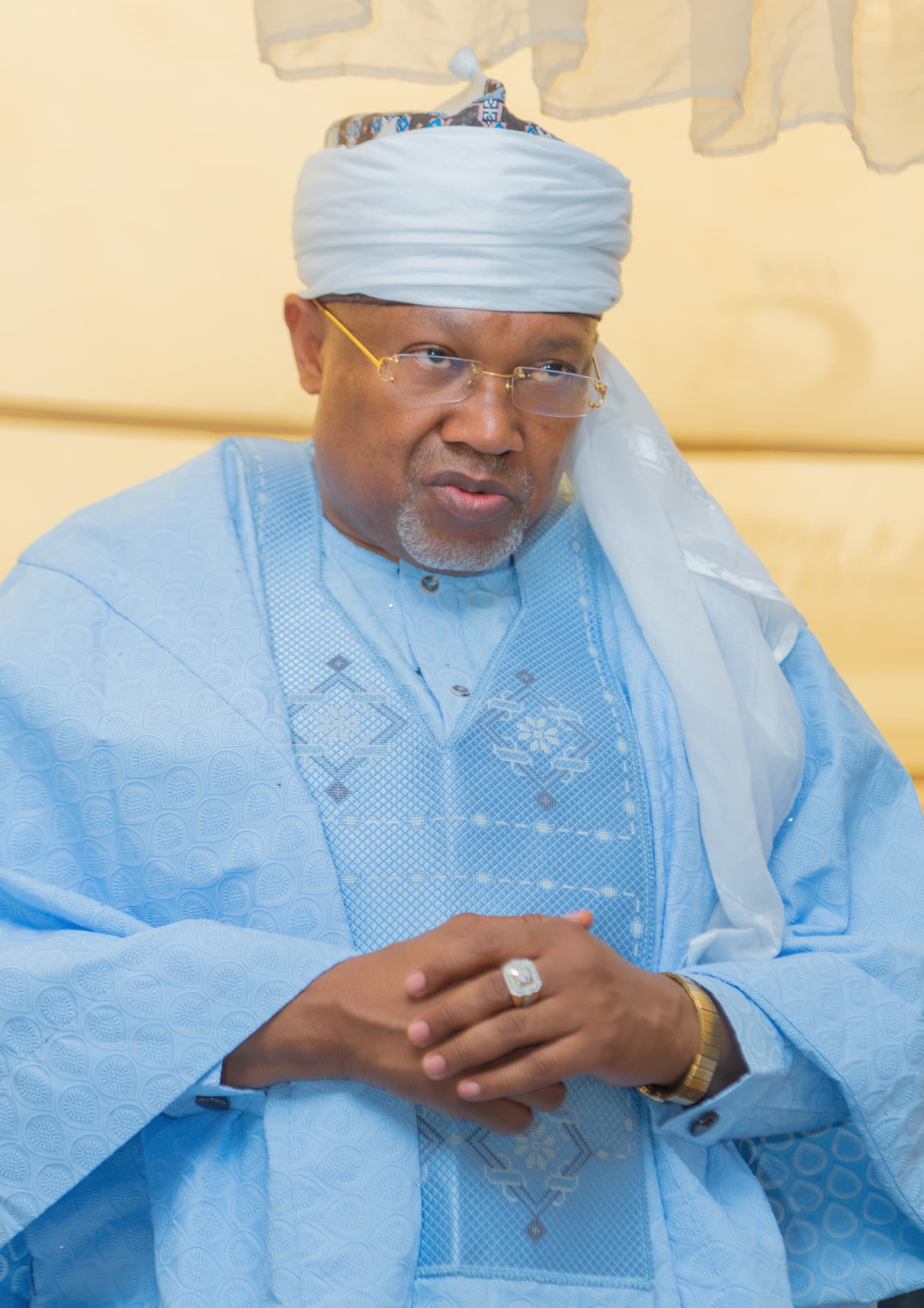
By Adegboyega Ajadi
Ilorin was thrown into rare jubilation last week. Not because of a political rally, nor because a sitting governor commissioned a project, but because a man of destiny returned home after a meritorious career in the public service. The outpouring of love for Engr. Suleiman Bolakale Kawu Agaka was spontaneous, overwhelming, and instructive. It was a message from the people to the political class: we know who has stood with us, and we know those who only remember us when elections draw near.
From Abuja to Ilorin, the narrative was the same. Stakeholders across party lines, community leaders, Islamic scholars, friends, associates, and ordinary people celebrated a man whose works have silently reshaped lives and whose character has earned him uncommon respect. In both cities, the events were not sponsored jamborees. They were not financed with state resources. They were genuine tributes by those who have seen, touched, and felt the impact of Engr. Kawu.
At the Abuja event organised by the Ilorin community, two voices stood out in their testimonies, his boss and his subordinate.
Abba Abubakar Aliyu, his former Managing Director at the Rural Electrification Agency, confessed he had yet to come to terms with the reality of Kawu’s retirement. With emotion in his voice, he declared: “No problem within the Agency that Engr. Kale was unable to resolve. He performed every assignment with utmost dedication and commitment, even spending his own resources to achieve targets. This is unprecedented in the history of the Agency.” That is not the usual flattery of a superior; it was the acknowledgment of a colleague who had seen him go above and beyond for the institution.
On her part, Ojua Omodara, who worked directly under him, gave a subordinate’s perspective: “Engr. Kawu is a goal-getter. He gives assignments and follows through until results are achieved.” Between these two voices, superior and subordinate, lies a portrait of leadership: diligent, selfless, and result-driven.
If Abuja offered professional testimony, Ilorin presented a moral verdict. From the airport to the heart of the city, unprecedented crowds lined the streets. People came in unimagined numbers, not lured by patronage, but drawn by affection. They came with their hearts, with their voices, and with their prayers.
The Chief Imam of Ilorin led other Islamic scholars in offering supplications for his continued success, affirming what the people already knew, that his record is not only professional but spiritual, not only official but human. The prayers were thanksgiving for a man who had already touched lives in ways politics rarely does.
Here lies the prosecution: one after another, communities testified in ways more compelling than any campaign manifesto could promise. Villages spoke of how they were lit up, not by political promises, but by transformers facilitated through Kawu’s intervention. Students recalled scholarships that kept them in school when hopelessness beckoned. Families gave witness to medical support received at critical times when their loved ones would otherwise have been abandoned to fate. Villages pointed to mosques standing tall in their midst, built through his generosity. Imams bore testimony that for the past 15 to 20 years, they had been receiving salaries from him, a quiet, consistent support that kept religious institutions alive.
This was not philanthropy performed with television cameras rolling. This was not the noise of politics. These were silent deeds of service, done without the inkling of seeking political office. And yet, those who benefited never forgot. The Ilorin outpouring was their verdict: this is the kind of leadership we trust, this is the kind of leadership we deserve.
Nigeria is in search of leaders who embody the values Engr. Kawu has lived: integrity, service without expectation, empathy, and selflessness. His story demonstrates that true leadership is not the pursuit of power for its own sake but the capacity to impact lives, often quietly and sacrificially.
Those who thronged Ilorin did not come to repay political favours. They came because they recognised a man whose entire life had been service. In a society drowning in political cynicism, where people believe politicians only remember them when elections approach, Engr. Kawu’s story is a refreshing contrast. He is the reminder that leadership is not about how loudly one campaigns but about how deeply one serves.
This is why his homecoming transcends a mere celebration of retirement. It was, in truth, a referendum on the kind of leadership Nigerians yearn for. In Kwara, it was a clarion call to the political class: the people are watching, the people are keeping records, and when the time comes, the people will speak again.
Without saying it outright, the people of Kwara made a declaration last week: Engr. Suleiman Bolakale Kawu Agaka represents the kind of leadership the state deserves. His track record at the Rural Electrification Agency shows competence, accountability, and sacrifice. His silent philanthropy across Kwara demonstrates empathy, compassion, and vision. His ability to attract people across party lines, as seen in Abuja, reflects the inclusiveness and bridge-building needed in today’s polarised polity.
The heroic welcome he received was not purchased. It was earned. It was not staged. It was organic. It was the people’s way of saying: we know you, we trust you, and we are ready to follow you if you choose to lead us further.
The lesson is simple but profound: in a country where trust in leadership has collapsed, there still exists a model of leadership that works. Kawu’s life proves that service begets loyalty, sacrifice earns trust, and consistency commands respect.
Ilorin’s historic outpouring was not just a welcome home; it was the unveiling of a man of destiny. The people did not just celebrate his past; they proclaimed their hope for the future. They see in him not only a technocrat who served diligently but a leader who can carry Kwara forward with empathy and vision.
In the end, the moral tribute becomes a political lesson: leaders are not made by titles or positions, but by the lives they touch. And in Engr. Kawu, the people have found both their hero and, perhaps, their future governor.
…Adegboyega, a public affairs analyst, writes from Gaa Akanbi in Ilorin
Opinion
Lilian Onoh And Her Endless Wars Of Vendetta
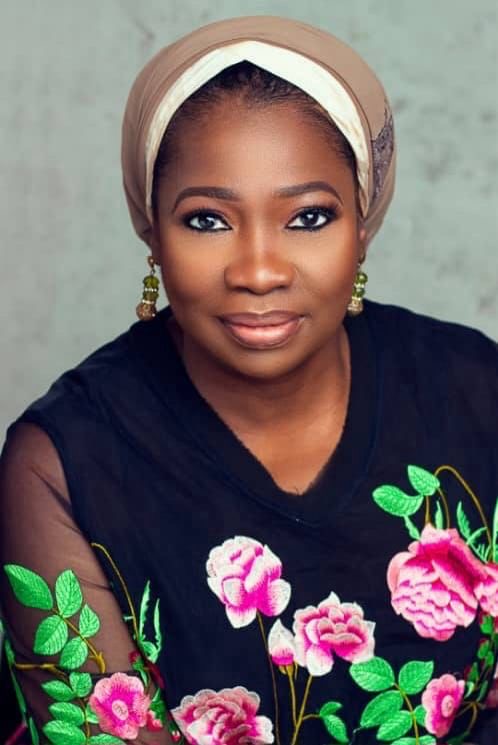
By Moradeke Kolawole
When a person is consistent in one thing, it becomes their identity. In the case of former Ambassador Lilian Onoh, consistency lies in bitterness, vendetta and endless feuds. Her latest attempt to drag Mrs Abike Dabiri-Erewa into her cycle of accusations follows a well-worn pattern. Onoh is known more for her fights than for any enduring legacy of diplomacy.
The court records from the libel case filed by former Minister of Foreign Affairs, Geoffrey Onyeama, expose the character behind the loud claims. Under cross-examination, Onyeama’s lawyer described her actions as nothing more than vendetta. Onoh herself admitted in open court that her hostility towards Onyeama was personal. She claimed he had pursued her career because her sister divorced him and went as far as describing the former minister’s supposed “hereditary insanity” and “unhinged psychiatric problem.” These are not the words of a seasoned diplomat. They are the words of someone consumed by malice and family feuds, now weaponised in professional spaces.
This is the same pattern she repeats with Abike Dabiri-Erewa. From a definitely fictional alleged encounter at Aso Villa in 2018, she has manufactured an entire story of Igbo hatred and ethnic vendetta, complete with insults, name-calling and cheap shots about appearance and education. Just like her fight with Onyeama, it is full of venom but empty of evidence. Abike Dabiri Erewa never met Onoh nor had any encounter with her anywhere at all. She is following her pattern of outright lies and venom.
It is ironic that someone accused of financial impropriety and known for dragging colleagues to court is now trying to lecture Nigerians on who is fit for public office. The truth is that Onoh’s record is one of bitterness and litigation, not of service and legacy.
By contrast, Abike Dabiri-Erewa’s record is open and verifiable. She gave voice to the voiceless as a journalist, served three terms in the House of Representatives with bills that cut across ethnic and religious lines, and as Chairman of NiDCOM has championed the cause of Nigerians stranded in Sudan, Ukraine, Libya, China and other troubled spots. She never asked whether they were Igbo, Yoruba or Hausa before intervening. That is the mark of service, not vendetta.
So when Lilian Onoh hurls unprintable words and tries to dress personal bitterness as national interest, Nigerians can see through it. Her own courtroom testimonies have already shown how far she is willing to go in twisting personal grievances into public battles.
Abike Dabiri-Erewa does not need to pay much attention to such manufactured stories because her work speaks for itself. Nigerians know her record and they know Onoh’s record too. One is a record of service, the other a record of quarrels.
So who is beyond redemption? Definitely Lilian Onoh.
Opinion
Defamation Is Not Democracy: Office Of Senator Ned Nwoko Will Not Stand For Character Assassination
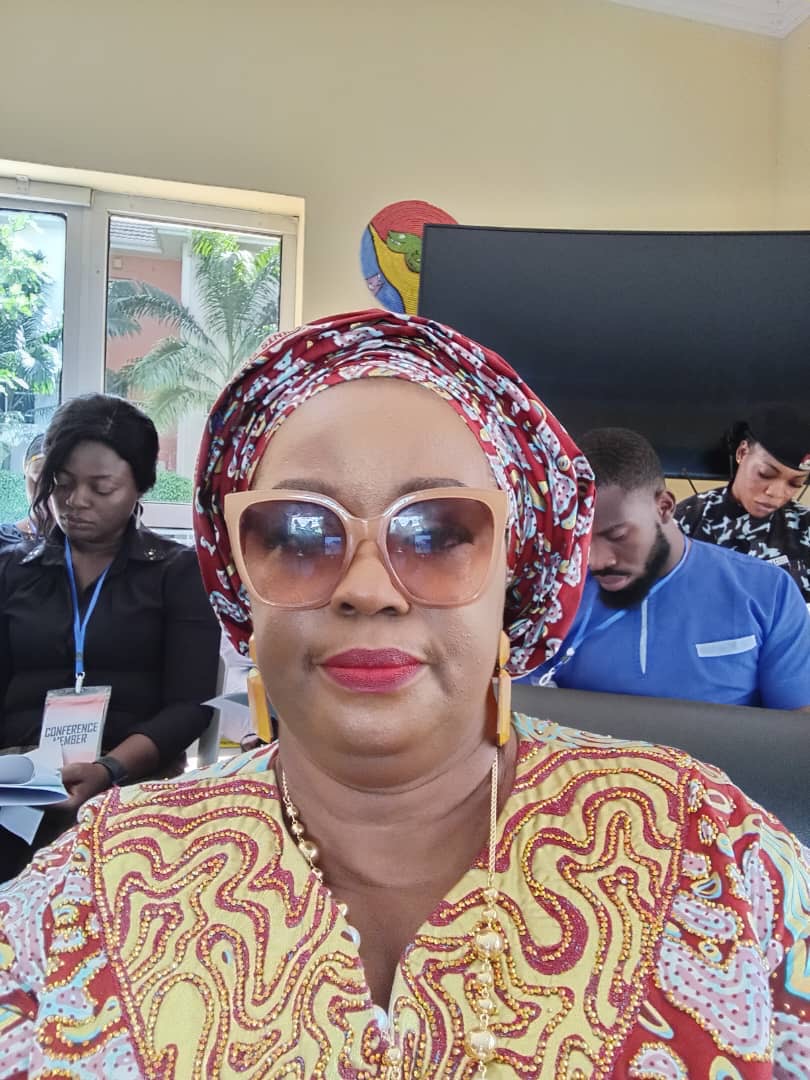
By Hon. Gloria Okolugbo
The Office of the Distinguished Senator Prince Ned Munir Nwoko has observed with deep concern the rising trend of reckless defamation, baseless accusations, and outright blackmail targeted at political officeholders under the guise of opposition politics. While democracy thrives on diverse opinions and constructive criticism, it must be emphasized that the fundamental principles of fairness, truth, and accountability cannot be sacrificed in the name of political engagement.
It has come to our attention that despite prior warnings, certain individuals continue to propagate falsehoods and defamatory claims against the Distinguished Senator.
The recent case involving one Mr. Chimezie, who falsely accused Senator Nwoko of certificate forgery, embezzlement of public funds, and other malicious fabrications, is a glaring example of this disturbing trend. These are not mere political criticisms; they are grievous allegations with serious legal consequences.
Senator Nwoko, a renowned international legal practitioner and respected global figure, has built his reputation through decades of hard work, integrity, and service. It is therefore unacceptable that anyone, under the cover of social media, would make unsubstantiated claims aimed at tarnishing his hard-earned name. In Nigerian society, reputation is highly valued, and while some may trivialize theirs, the Distinguished Senator will not stand by and allow his integrity to be recklessly attacked.
Legal implication of defamation and cyberstalking
The laws of Nigeria and other civilized societies are clear on defamation, cyberstalking, and false accusations. The Cybercrimes (Prohibition, Prevention, etc.) Act, 2015, particularly Section 24, criminalizes the use of electronic communication to send messages that are false, grossly offensive, or of a menacing character. Additionally, under the Criminal and Penal Codes of Nigeria, defamatory statements—whether in writing (libel) or spoken (slander)—are serious offenses punishable by law.
Forgery, an allegation carelessly thrown at the Distinguished Senator, is a grave criminal offense under Section 363 of the Criminal Code, attracting severe legal consequences. An accusation of forgery is not a matter to be taken lightly; it is an assertion that a crime has been committed, and the burden of proof lies on the accuser.
It is imperative to remind all that freedom of expression does not include the right to malign, defame, or falsely accuse others. Criticism of public officials should be based on facts and responsible discourse, not deliberate falsehoods designed to mislead the public and incite disaffection.
Political opposition must not be grounded in falsehoods
Distinguished Senator Ned Nwoko holds no grudge against anyone for opposing his policies or questioning his performance in office. He firmly believes that opposition is essential for democracy, as it fosters accountability and effectiveness in governance. However, opposition must be guided by reason, decency, and truth.
Emotion should never override common sense. Making reckless statements without evidence does not amount to opposition politics—it is blackmail and character assassination. The issue at hand is not about silencing critics but about ensuring that grave allegations are backed by facts and not mere political gimmicks.
The need for accountability in public discourse
Mr. Chimezie’s defamatory post was not made in secret; it was widely circulated across social media platforms, reaching audiences beyond Nigeria’s borders. He had nearly a month to retract or provide proof but chose neither. Instead, those supporting him now seek to shift the narrative by playing the victim card.
Let it be clear: Senator Ned Nwoko is the victim here. Defamation is not a tool for political engagement, and no individual—regardless of their background—has the right to make false accusations without being held accountable. Arrest is not persecution; rather, it is the lawful means of ensuring justice. If Mr. Chimezie has evidence to support his claims, now is the time to present it. Otherwise, he must face the consequences of his reckless actions.
Justice is for all – not just for the poor
Justice is not selective. While the public is quick to rally behind perceived underdogs, it is essential to recognize that the rich and powerful also deserve justice. Political officeholders, like every other citizen, have the right to protect their reputation and dignity. The attempt to paint this case as oppression is a deliberate distraction from the real issue: falsehood and its consequences.
The Legal Department and Communication Directorate of Senator Prince Ned Munir Nwoko’s office will not stand idly by while defamatory attacks continue unchecked. Going forward, any attempt to spread falsehoods or malicious allegations against the Distinguished Senator will be met with the full weight of the law.
We encourage constructive engagement and responsible discourse but will not tolerate slander, cyberstalking, or blackmail. Those who wish to oppose Senator Ned Nwoko are free to do so within the bounds of truth and decency. However, let it be known that defamation will not be ignored nor excused.
Signed,
Hon. Gloria Okolugbo Director Communications
Office of the Distinguished Senator Prince Ned Munir Nwoko.
-
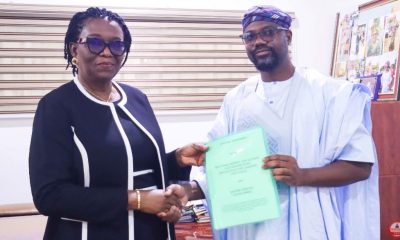
 Business & Economy1 year ago
Business & Economy1 year agoNASENI, Qietur partner to build 3000 Housing Units for Staff
-
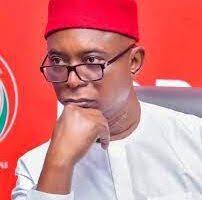
 Opinion8 months ago
Opinion8 months agoAnioma State: A Necessary Proposal Rooted in Strategic Advantage
-
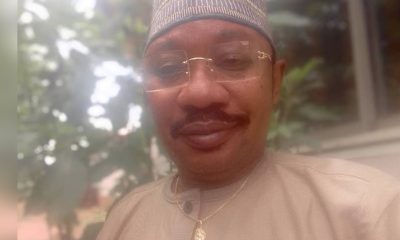
 Law1 year ago
Law1 year agoHuman Right and Law Enforcement in Nigeria: A Critical Analysis
-

 Education1 month ago
Education1 month agoNABTEB Registrar advises automotive, locomotive Engineers to do more to diversify Nigerian economy
-

 Education4 months ago
Education4 months agoTVET will change Nigeria for good, says NABTEB Registrar
-
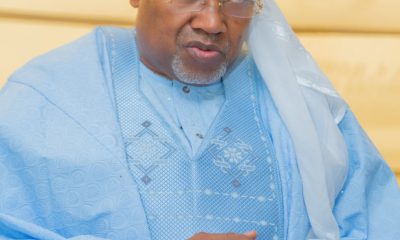
 Opinion1 month ago
Opinion1 month agoEngr. Kawu: A Heroic Homecoming for a Man of the People
-
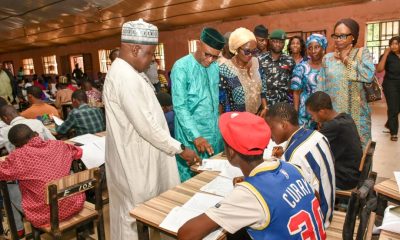
 Education4 months ago
Education4 months agoTVET: FG conducts entrance exam into FTCs for 30,000 students
-

 Arts & Life1 year ago
Arts & Life1 year agoSee What Nigerian Popular DJ, Regan Uchechukwu, Plans To Do In Benin City Soon
